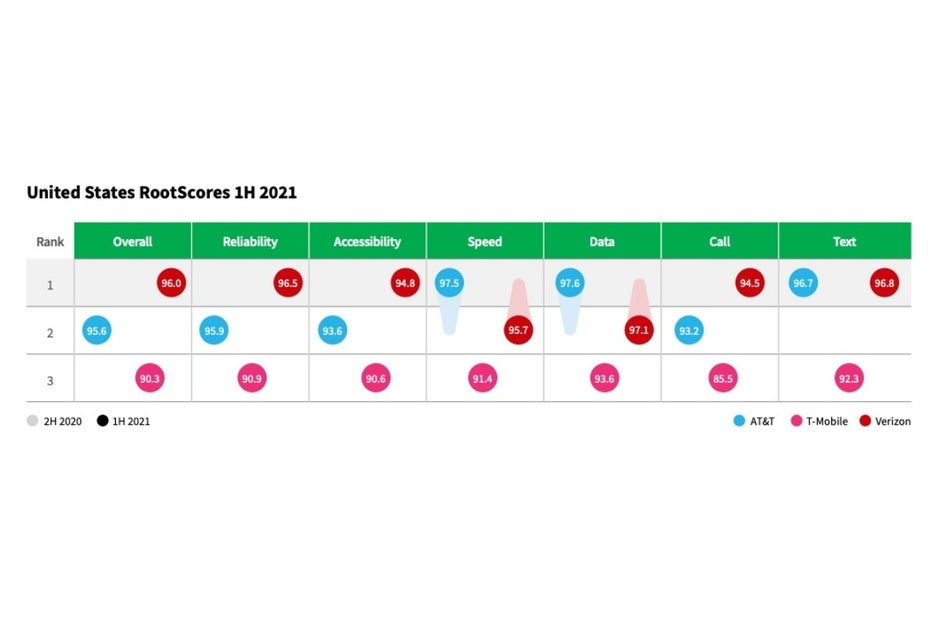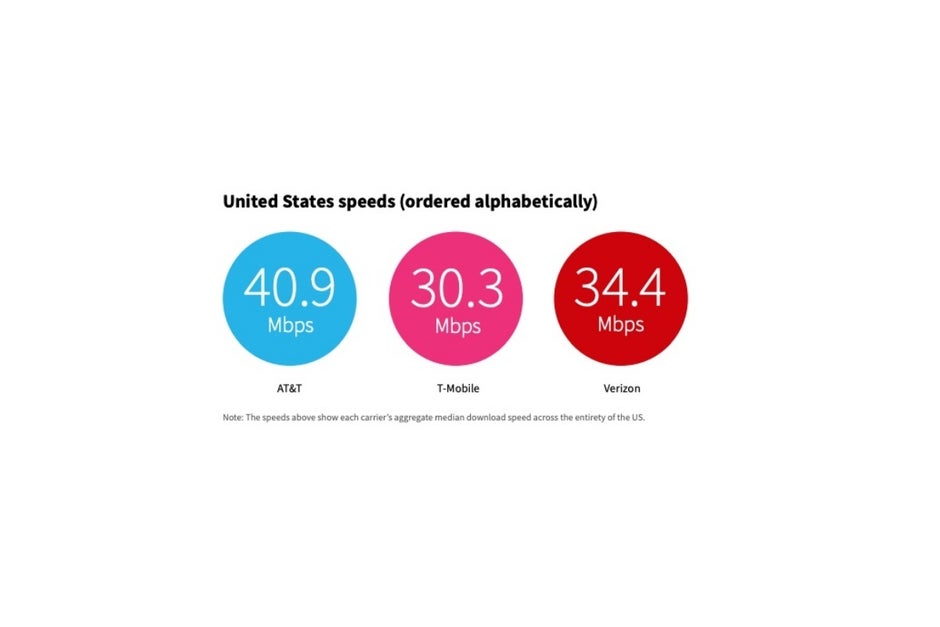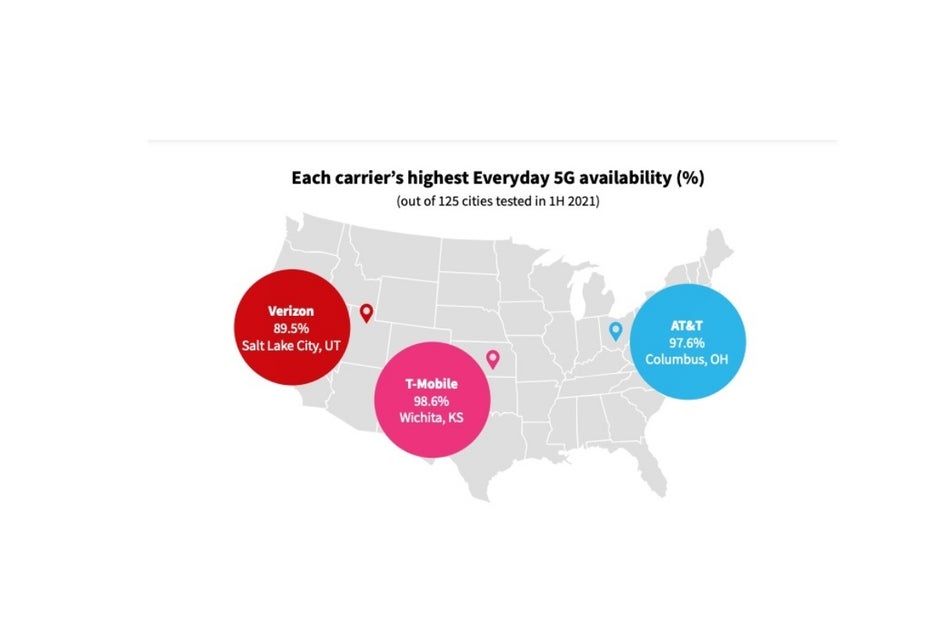Cellular Network Performance
JD Power: US cellular network quality declines – users cite slow or failure to load content
US cellular network quality has recently declined, according to a new study released this week by J.D. Power. That metric comes as as more devices were loaded onto their respective networks and used for streaming and other types of data-hungry applications. The most common reported problem is slow or failure to load content.
“An uptick in wireless and device usage was bound to catch up to network quality,” said Ian Greenblatt, managing director at J.D. Power. “Wireless customers are increasingly adept in data usage and streaming, meaning they’re less inspired and more aware of problems. While the number of problems is significantly lower when 5G is available, the most influential problems on network quality ratings continue to be streaming audio and video quality, low loading times and calls not going through.”
Verizon Wireless ranks highest in five regions evaluated in the study, achieving the fewest network quality problems per 100 connections (PP100) in call quality; messaging quality; and data quality in the Mid-Atlantic, North Central, Northeast, Southeast and West regions.
AT&T ranks highest or is tied in all factors in the Southwest region with a score of 11 PP100, achieving the fewest network quality problems in call quality in the region.

The 2022 U.S. Wireless Network Quality Performance Study—Volume 2 is based on responses from 34,174 wireless customers. Carrier performance is examined in six regions: Mid-Atlantic, North Central, Northeast, Southeast, Southwest and West. In addition to evaluating the network quality experienced by customers with wireless phones, the study also measures the network performance of tablets and mobile broadband devices. The study was fielded from January through June 2022.
By region, here’s how the network quality numbers compared:
- Mid Atlantic: regional average in V2 is 10; regional average in V1 was 9.
- North Central: regional average in V2 is 10; regional average in V1 was 9.
- Northeast: regional average in V2 is 10; regional average in V1 was 9.
- Southeast: regional average in V2 is 11; regional average in V1 was 10.
- Southwest: regional average in V2 is 12; regional average in V1 was 11.
- West: regional average in V2 is 11; regional average in V1 was 9.
For more information about the U.S. Wireless Network Quality Performance Study, visit
https://www.jdpower.com/business/resource/jd-power-wireless-network-quality-performance-study.
About J.D. Power:
J.D. Power is a global leader in consumer insights, advisory services and data and analytics. A pioneer in the use of big data, artificial intelligence (AI) and algorithmic modeling capabilities to understand consumer behavior, J.D. Power has been delivering incisive industry intelligence on customer interactions with brands and products for more than 50 years. The world’s leading businesses across major industries rely on J.D. Power to guide their customer-facing strategies.
J.D. Power has offices in North America, Europe and Asia Pacific. To learn more about the company’s business offerings, visit JDPower.com/business. The J.D. Power auto shopping tool can be found at JDPower.com.
References:
Media Relations Contacts:
Geno Effler, J.D. Power; West Coast; 714-621-6224; [email protected]
John Roderick; East Coast; 631-584-2200; [email protected]
RootMetrics: Verizon wins 5 of 7 U.S. RootScore awards
RootMetrics (owned by IHS-Markit) conducted nearly 3 million tests in the first half of 2021 to see how the mobile carriers performed across the entire U.S., within the 50 states, and across the country’s 125 most populated metropolitan markets. The network monitoring firm also examined 5G results for each network as expansion continues.
Verizon remains the carrier to beat:
Verizon delivered another excellent performance in 1H 2021. The carrier won or shared five out of seven U.S. RootScore Awards and earned more State and Metro Area RootScore Awards than any other carrier. Verizon also continued its trend of offering strong speeds and great reliability in major cities, and as shown in our last 5G Scorecard, Verizon has also delivered outstanding Everyday 5G data reliability more often than the other carriers.
AT&T shows major improvements across the board:
After taking a slight step back for speed in 2H 2020, AT&T delivered faster speeds, better reliability, and strong Everyday 5G results in 1H 2021. AT&T took home three US RootScore Awards in 1H 2021 compared to one in 2H 2020, while significantly increasing its tally of State and Metro Area RootScore Awards. And as our 5G Scorecard series has shown, AT&T has also delivered fast Everyday 5G download speeds more consistently than the other carriers in 1H 2021.
T-Mobile improves in major metros:
T-Mobile continued to perform well in our metro area testing, delivering good and improved median download speeds, with stronger reliability since 2H 2020. The carrier also provided the top Everyday 5G availability in RootMetrics’ June 5G Scorecard, and its 5G speeds have continued to improve since 2H 2020.
State RootScore Award tally – by category:
Overall Reliability Accessibility Speed Data Call Text Total
AT&T 25 26 18 41 36 28 43 217
T-Mobile 0 1 2 4 0 1 8 16
Verizon 41 43 38 24 27 45 46 264
……………………………………………………………………………………………………………………………………………
Metro performance in a nutshell:
AT&T continued its trend of improvement we saw in our national and state testing to the metro level in 1H 2021. AT&T won far more awards than in 2H 2020, registered faster speeds, good reliability, and delivered fast Everyday 5G download speeds.
T-Mobile increased its tally of RootScore Awards since 2H 2020, delivered much better speed results, and showed improved reliability. T-Mobile has also continued to deliver impressive Everyday 5G availability. Verizon remained the top-performing carrier at the metro level.
Verizon delivered good speed and reliability results and earned by far the most Metro Area RootScore Awards. Verizon’s 5G has also continued to expand, with the carrier recording particularly strong Everyday 5G data reliability results.
……………………………………………………………………………………………………………………………………………………………….

………………………………………………………………………………………………………………………………………………
References:
https://rootmetrics.com/en-US/content/us-state-of-the-mobile-union-1h-2021


